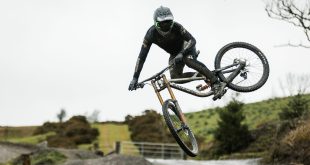The Department for Transport has just published two twelve-week consultations. One seeks views on the principle of changing the law to permit the use, on public roads and cycle tracks, of small electric personal vehicles (EPVs), which do not meet current legal requirements for such use. Think Segways.
The other concerns electrically-assisted pedal cycles and seeks views on proposals to provide closer alignment of GB Regulations with European provisions.
"The proposals will provide greater clarity regarding the type of product considered to be an electrically-assisted pedal cycle and those considered to be motor vehicles (e.g. mopeds)," said Lord Adonis, Secretary of State for Transport.
The consultation documents and response forms are available on the DfT’s website. The consultations will close on 30th March.
The specification of e-bikes (EAPCs – electrically assisted pedal cycles) for use in Great Britain, is currently regulated by The Electrically Assisted Pedal Cycles Regulations 1983.
The introduction of revised harmonised European construction rules for powered two wheel vehicles in 2002, and the recent introduction of a European Standard for EAPCs created a mismatch between the European requirements and the current GB Regulations, causing confusion for both industry and consumers.
"Our aim is to simplify the Regulations to benefit retailers and consumers," says the DfT’s consultation document. "Failure to align could result in legal challenge to our national rules by the European Commission.
"Amendments are considered necessary to provide greater clarity between the GB definition of an electrically assisted pedal cycle and an electric moped, and also to align with the exemption for electric cycles in the European Motor Cycle Whole Vehicle Type-Approval Framework Directive and the European Standard, BS EN Standard 15194:2009."
The GB EAPC Regulations currently permit a maximum continuous rated power of 200W for bicycles and 250W for tandems and tricycles. The European rules permit a maximum continuous rated power of 250W for bicycles, tandems and tricycles.
Cycles that permit power assistance without the rider pedalling fall within the scope of the European Whole Vehicle Type Approval Framework Directive for motorcycles: they’re mopeds.
The DfT wants to Aamend GB EAPC Regulations to "clarify that EAPCs manufactured from a certain future date may only supply power assistance only when the rider is pedalling (other than perhaps at very low speeds to assist start up e.g. 6 km/h)."
The DfT is also seeking views on whether Electic Personal Vehicles (EPVs) should be allowed to use cycle paths. By EPVs, the DfT means Segways, not mobility scooters.
The Electric Personal Vehicle (EPV) consultation "seeks your views on whether DfT should explore changing the law to allow such vehicles to use public roads and cycle tracks. This consultation does not propose permitting such vehicles to use dedicated pedestrian areas such as footways and footpaths."
 BikeBiz Bicycle and cycling retail news
BikeBiz Bicycle and cycling retail news



